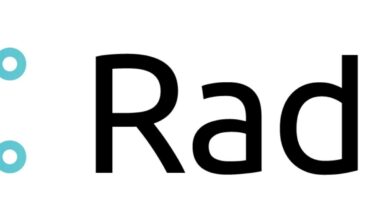United Airlines Turns To Generative AI To Help Explain Flight Delays

A United Airlines aircraft taking off from Barcelona Airport
Every flight delay happens for a reason, but passengers don’t always get the full story. United Airlines is working to change that, using a combo of human storytellers and generative AI to give fliers more context and make a frustrating experience a bit more bearable.
Say you’re in San Francisco waiting for a flight to Tucson. In the past, you might have gotten a generic message saying there’s a delay because the plane arrived later than expected. Now, AI can scan flight systems and, after a quick review from a human, send an alert letting you know the backup was caused by runway construction at SFO.
The AI-assisted messages mark an evolution for Every Flight Has a Story, an initiative United launched in 2018 to give customers more information when things go wrong. United knows that more transparent messaging about flight issues can build trust with passengers, and providing even small details have had a positive impact on customer satisfaction metrics.
United Airlines CIO Jason Birnbaum
With generative AI, United’s team of roughly 15 storytellers is getting a tool that will help them handle more messages and provide more details to passengers, important ahead of the busy summer travel season. Around 6,000 flights have received at least one GenAI-assisted message since the rollout earlier this year, and there are plans to scale up quickly.
“It’s about expanding the coverage of the team,” Chief Information Officer Jason Birnbaum said. “If we can use GenAI to speak to a larger audience more often, we know that will drive NPS even more.”
Every Flight Has a Story is just one area where United is injecting AI into its operations, part of a push under Birnbaum to make team members’ jobs easier and deliver more personalized travel experiences via tech. It also provides a glimpse into how large companies like United are integrating generative AI into daily operations, and how teams are navigating the ups and downs of working in tandem with the new technology.
AI’s learning curve
Dennis Lawrence, United’s Director of Operations Solutions, described the storytelling team’s work as a kind of verbal gymnastics. When a complex delay comes their way, they transform operational data and sometimes jargon-y notes from flight crews to create concise alerts that makes sense for customers.
Now, generative AI is helping the storytellers by doing some gymnastics of its own, scanning those same systems and data, grabbing the necessary context and drafting a message for the team to review.
United storytellers work inside a portal that includes the AI-generated message next to the standard alert. After checking that the AI message is accurate, grammatically correct and in United’s voice, storytellers can decide to approve it, or send the AI back to the drawing board. It gives them a template to start with and an opportunity to add their own touch.
The AI doesn’t always get it right. Sometimes it includes grammatically incorrect sentences or text that’s not related to the actual delay. That’s where human judgment and feedback becomes critical, both to train the model and make sure customers don’t get inaccurate alerts.
“You really have to iterate constantly and have a process where you have humans in the loop and make revisions frequently,” Lawrence said.
In addition to approving or rejecting individual messages, storytellers work with prompt engineers and others to understand why certain messages did or didn’t make the cut. The engineers then update the model so it doesn’t make the same mistake next time. Teams have a daily huddle to talk about what went well and how the process can improve.
A big change for the storytelling team has been adapting to more messages coming in each day. Individuals have about three minutes to assess and approve messages to make sure passengers get timely alerts. If the clock runs out, the default message goes out as a safeguard.
As AI starts to play a bigger role across United, Every Flight Has a Story team shows the importance of taking an iterative approach to AI, installing the appropriate guardrails, and accepting that a learning curve is inevitable.
“It doesn’t have to be great at first, but you have to start somewhere,” Lawrence said.
An AI-assisted future
As Every Flight Has a Story continues to evolve, Birnbaum and the technology teams at United are busy exploring new opportunities for AI-assisted storytelling and other ways generative AI can make a positive impact.
On the storytelling front, that may include working with AI to craft messages around big events. For the NBA All-Star Game earlier this year, messages let passengers know to “expect a full-court press at security lines today” and encouraged them to “beat the buzzer by arriving early.”
Other projects include UnitedGPT, a modified version of OpenAI’s ChatGPT 4.0 that can be safely used on United devices. The company is also looking at ways to improve efficiency in contact centers by using AI to pre-read emails and suggest appropriate responses, cutting down the time it takes to solve problems.
Across United, AI “is accelerating lots of the things we want to do,” Birnbaum said. The focus, he added, is people. “When we give them tools and data to work better, ultimately it makes things better for the customer.”



